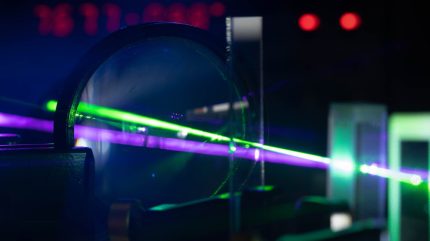
The UK Ministry of Defence (MoD) has revealed that a secret laboratory is creating a quantum technology-based atomic clock, designed to improve military intelligence and surveillance capabilities.
This device, developed at the Defence Science and Technology Laboratory (Dstl), aims to reduce dependence on GPS technology, which adversaries can disrupt.
The quantum clock offers precision and enables accurate time measurement.
Scheduled for deployment within five years, this is the first of its kind in the UK and aims to advance global navigation systems, satellite communication, and aircraft navigation.
The technology aligns with the UK Government’s Plan for Change, enhancing national security and contributing to economic growth through high-skill jobs.
Future research aims to reduce the size of the technology for mass production and integration into military vehicles and aircraft.
Quantum clocks offer precise navigation systems independent of GPS satellites, which are susceptible to interference in conflict situations.
They also secure communication systems and improve the accuracy of advanced weapon systems.
The Dstl’s trial of this UK-built optical atomic clock outside a laboratory setting enhances advanced weapon systems like guided missiles by improving timing for trajectory calculations and coordinated attacks.
It offers a stable, sovereign-controlled alternative to GNSS for operations, particularly in cyber warfare.
Key partners, including Infleqtion, Aquark Technologies, HCD Research, and Imperial College London, collaborated with Dstl’s quantum lab.
Dstl chief executive Paul Hollinshead said: “This first trial of advanced atomic clock represents a significant achievement in the UK’s quantum technology capabilities.
“The data gathered will not only shape future Defence effort but is also a signal to industry and academia that we are serious about exploring quantum technologies for secure and resilient operational advantage.”
The trial is part of the ‘Demonstration of Advanced Timing Apparatus’ (DATA) series to assess quantum clocks for military and national infrastructure resilience.
The MoD has invested more than £28m ($35m) in research and development to position the UK as an early adopter of these transformative technologies, with defence and security needs driving the efforts.
This initiative follows a trilateral agreement between the MoD, DARPA, and the Canadian Department of National Defence, to advance AI and cybersecurity systems.



